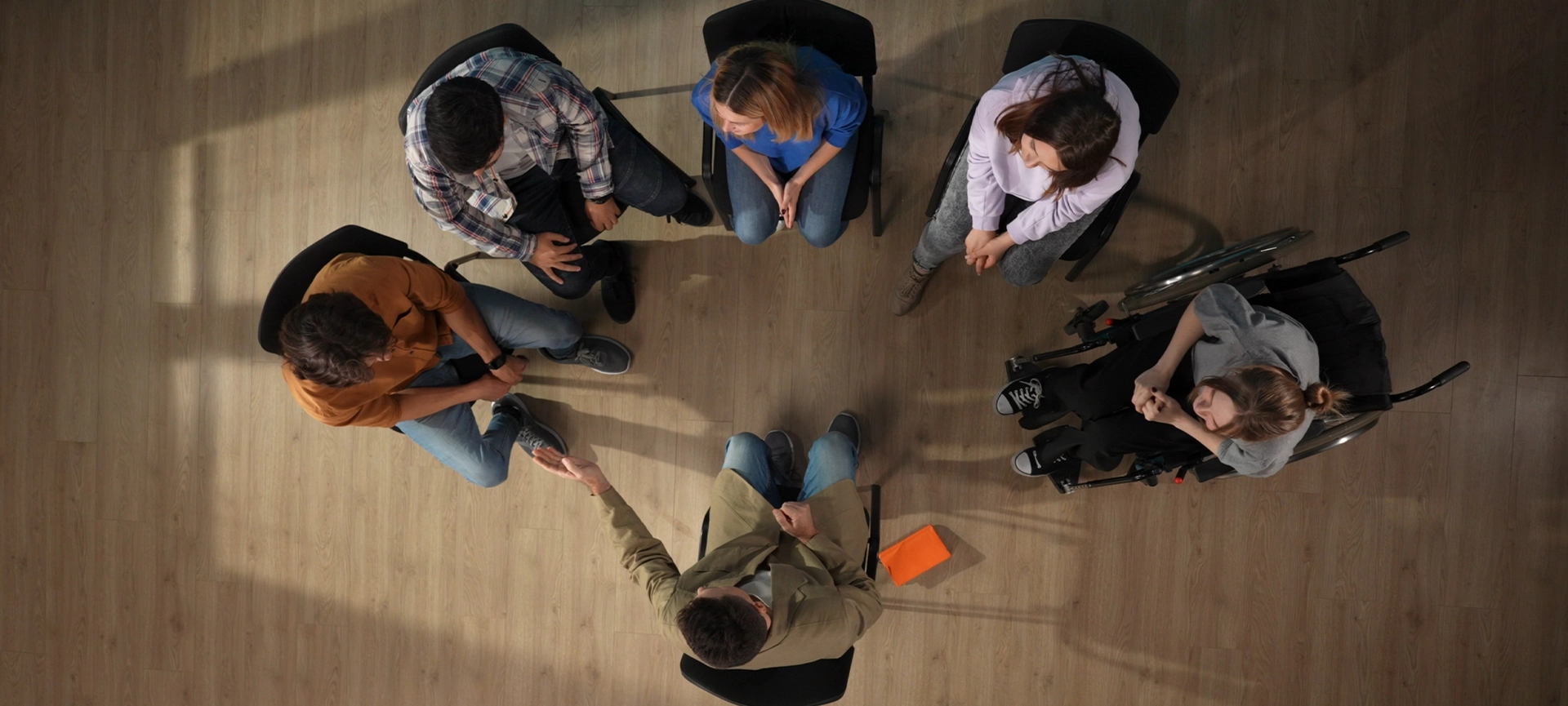Beginning the path toward recovery can feel intimidating when you are unsure of what lies ahead. Many individuals in Barrie wonder how the rehab intake process works and what it involves. At Addiction Rehab Toronto, we aim to offer clear guidance, so you know exactly what each step entails.
This blog provides a detailed look at our intake process. You will learn how we gather information, assess your needs, and design a plan that supports your recovery goals. We will also discuss medical and emotional evaluations, admission day expectations, and the importance of aftercare.
By the end, you will have a better sense of how Addiction Rehab Toronto helps clients move towards healthier, substance-free living.
Related Article: Top 5 Tips for Choosing an Addiction Rehab Centre in Barrie
Understanding the Intake Process
The intake process is your first significant step. This is when we collect details that help us offer the right care approach. Substance use disorders often involve various physical, mental, and emotional factors, and our team uses the intake phase to explore all these areas.
During this stage, you will speak with an admissions specialist who will review your substance use patterns, any relevant medical history, and any mental health concerns. If you are dealing with urgent issues—such as severe withdrawal symptoms—this is where we identify those needs.
We recognize that each person is different, so we treat the intake process with care. Our staff will encourage you to ask questions, voice concerns, and share any special requirements you might have. This approach sets the groundwork for a more focused recovery plan.
Preparing For the First Call
A single phone call can seem like a big hurdle. Below are some points to consider before picking up the phone:
- Have Basic Information Ready
Think about how long substance use has been an issue, what substances are involved, and any existing medical conditions. - Ask About Program Options
Our services include supervised detox, in-patient treatment, virtual rehab, and family therapy. If you have specific needs—such as a busy schedule or a particular medical condition—be sure to discuss them. - Share Financial or Insurance Details
Having your insurance or payment information available can speed up the process. Our staff can clarify coverage, out-of-pocket costs, and potential payment plans. - Voice Any Concerns
Whether you are feeling anxious or uncertain, let us know. We handle every query with respect and understanding.
By preparing for this first call, you can make the conversation smoother and gain immediate clarity on how treatment might progress.

The Comprehensive Assessment
Once you have completed the initial call, we arrange a thorough assessment. This helps us form a complete view of your background and current needs. Our staff will:
- Review Medical Records (if available)
We look at any past diagnoses, treatments, or surgeries that might affect your recovery. - Examine Substance Use History
We note the type of substances used, how often, and whether you have tried to quit before. Any past rehab experiences also give us important clues about what approaches might work best now. - Evaluate Emotional or Mental Health Factors
Conditions like anxiety, depression, or unresolved trauma may fuel substance use. Recognizing these issues at the start can make treatment more effective. - Look at Lifestyle and Family Dynamics
Your living situation, career responsibilities, and personal relationships can influence recovery. Our team takes these factors into account to create a balanced plan.
By the end of this assessment, we have a clearer perspective on the challenges you face. This allows us to organize a strategy that addresses both the physical and emotional parts of addiction.
Medical and Emotional Evaluation
A safe and supportive environment hinges on understanding your physical and emotional health. During this phase:
- Physical Check-Up
Our clinical staff checks vital signs, reviews medications, and screens for signs of withdrawal. If your situation requires detox, we plan it under close supervision to handle any discomfort or complications. - Emotional Assessment
Therapists may explore past traumas, ongoing stress, or relationship conflicts. Substance use can be a way to cope with pain, so it is important to identify these patterns early. - Risk Assessment
If there is a risk of self-harm or harm to others, we develop measures to keep you safe. This could involve extra medical checks or more frequent therapy sessions.
Open communication is key here. We value honest discussions about symptoms, mental health struggles, or fears. By addressing concerns directly, we create a safer, more effective treatment experience.
Building a Suitable Treatment Plan
After we analyze the information gathered, we map out a treatment plan with you. This plan can include:
- Supervised Detox
If you require detox, we focus on minimizing discomfort and monitoring your health. Our medical team makes sure withdrawal symptoms are managed properly. - In-Patient Program
Some people benefit from an immersive setting. Our in-patient program offers structured schedules, daily therapy, and peer support, all within a secure facility. - Virtual Rehab
If you need to remain at home for family or work reasons, we have remote options that use online platforms for therapy and group meetings. - Family Therapy
Substance use affects loved ones as well. Our family therapy sessions help repair relationships, improve communication, and encourage shared healing. - Holistic Approaches
In addition to traditional therapy, we offer mindfulness practices, exercise programs, and other activities that aim to improve both emotional and physical well-being.
By customizing these elements, we create a structured framework that speaks to your specific condition. You remain involved in these decisions, which helps you feel more connected and motivated.
Related Article: Family Counseling for Addiction: Healing Together on the Path to Recovery
Admission Day and Orientation
When you arrive for in-patient treatment, you will be greeted by staff members who guide you through the next steps:
- Paperwork and Formalities
You will complete any remaining documentation and confirm payment details. We make sure you understand the centre’s guidelines and daily routine. - Facility Tour
You will see the living quarters, shared spaces, and therapy rooms. Getting familiar with the environment can ease initial anxiety. - Meeting Key Staff
Early introductions to counsellors, support staff, and peers help you feel more comfortable. This is also an ideal time to ask about specific activities or schedules. - Orientation and Expectations
We explain how therapy sessions work, what group activities are available, and how meals and personal time are organized. If you have a unique request, let us know so we can address it effectively.
Related Article: What to Expect During the Admission Process at Addiction Rehab Toronto

Aftercare and Ongoing Support
Recovery goes beyond the initial treatment phase. Once you complete your primary program, we encourage ongoing participation in aftercare. This can include:
- Follow-Up Counselling
Regular check-ins help you cope with stress, track progress, and stay motivated. You can do these sessions in person or virtually. - Peer Support Groups
Sharing experiences with others who understand your journey can prevent feelings of isolation and boost your confidence in remaining substance-free. - Family Involvement
Many clients find it helpful to include loved ones in their continued healing. Family sessions or joint activities can reinforce positive communication and reduce conflict. - Relapse Prevention Strategies
We discuss warning signs, triggers, and coping skills to reduce the likelihood of relapse. If you do encounter setbacks, our team stands ready to offer guidance.
Ongoing support can be a difference-maker in maintaining your new, healthier lifestyle. We stay connected with you to make sure you have the tools and encouragement you need.
Related Article: Addiction Treatment Centers Near Me: 7 Key Questions to Ask Before Choosing One
Take the Next Step Towards Healing
The intake process at Addiction Rehab Toronto sets the stage for your progress. Each step aims to give you a clear path.
We understand that substance use is often linked to emotional, social, and medical factors. By recognizing each of these elements early, our team can focus on both immediate stability and long-term change.
If you live in Barrie or nearby and want to learn more about how rehab can improve your life, reach out for more details. The sooner you begin, the sooner you can realize positive changes. We stand ready to help you take the first steps toward a healthier, more fulfilling future.







